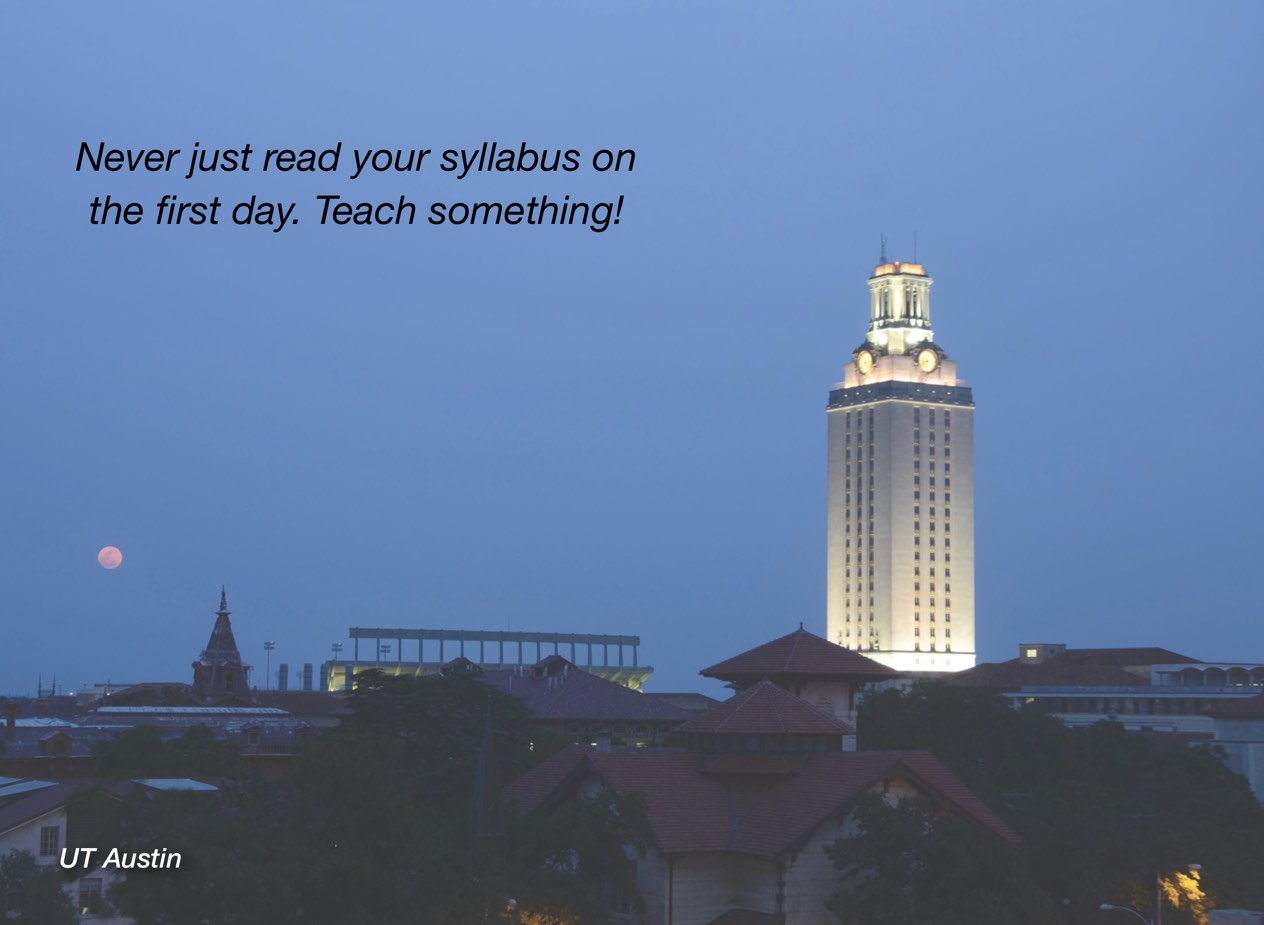40 Be Careful—They Are Sensitive Beings


Catherine Ross
Professors have many students each semester. We get busy; we get careless. Students usually have only four or five professors each term. They want you to notice and like them. What you say, or don’t say, or telegraph with a look can loom much larger in their lives than you may expect.
And then there is this thing called stereotype vulnerability. Apparently for some students, the normal stress of learning new things can trigger reminders of negative stereotypes, such as, “Women aren’t as good at math as men” or “Those who study the humanities are wasting their time.” Students can begin to feel judged (or to negatively judge themselves) even when their professor has said or done nothing that is in any way judgmental. Once a student starts to think a professor is unsympathetic to his identity group, in most cases he will shut down, often silently, giving the professor no indication of what has happened. It is mighty hard to rescue such a situation. So be careful. Students are sensitive beings.


Chapter 40 Commentary: Diana Dominguez
“Whether we like it or not, as educators, we are role models to our students. Some students will seek us out for mentoring or advice on classes to take, books to read, or careers to follow. These are the students with whom we develop relationships that “give us all the feels.”
We also need to realize the effect we have on those other students in our classes, the ones who never come to office hours, who don’t request extensions on assignments because they are overwhelmed, who don’t explain an absence in a semester – the students who simply don’t communicate with us even though we make it clear that we want to hear from them. Short of forcing them to interact with us outside of class, it is in the classroom where we can serve as positive role models.
Greeting students by name when they get to class, finding moments to engage in non-class-related banter, providing encouraging feedback on assignments in a conversational tone: these are all low-maintenance equivalents to the smile you give a stranger on a street that can spark a domino effect of positivity. Students are, indeed, sensitive beings, and when we show we see them as individuals, we validate them and give them worth. In return, they’ll see us as individuals, as sensitive beings, but, more importantly, they’ll likely go on to spread that same attitude to others. And that can give all of us “the feels".”

